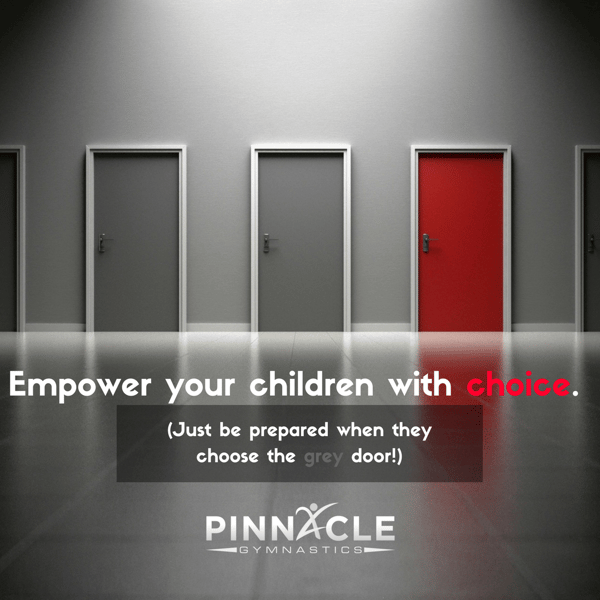5 Ways to Empower Kids at Home
When you empower kids, you are setting them up for a lifetime of success. Empowerment is having the authority and knowledge to make decisions for the betterment of oneself and others. Teaching young children this principle will help them make good choices, stand up to bullies, and set them up to be able to advocate for themselves and others as they mature into young adults.
1. Give your child a choice.
And let them deal with consequences that might come with it. At a young age, children like doing things for themselves. Allowing them to make choices independently gives them a voice. As children get older, they desire an increased sense of independence. Continuing to provide choice enables pre-teens and teenagers a sense of self. It also can reduce the parent's role as the "bad guy" by emphasizing that the child is the one that had the authority to make the decision. Threats and punishment rarely work, and there persuasion can only take you so far. When trapped in a negotiation, give the opportunity to decide to the child. Just be ready to deal with either choice that is made.

2. Have a family meeting.
When behavior issues are not specific to a single child or single incident, consider a family meeting. There is likely a driving force behind the behavior causing disruption in your family dynamics. Before calling a family meeting, make sure all parties are calm and ready to speak with a level temper. Allow your kids to be heard. Ask them questions that allow them to share their emotions and actions. Part of a family meeting is self-reflection, so be prepared to hear how your reactions to your children's behavior affect them as well. For more tips on a successful family meeting, reference "How to Raise Kind Kids" by Thomas Lickona.

3. Let them struggle
Ah, yes! A parent's role is to help our children. But what if we are helping them too much? What if they never learn that there are outcomes (both positive and negative) associated with their actions? Part of effective parenting is allowing kids to learn by trial and error. In the same spirit of allowing them to make choices, we must not bail them out of the choices that they make that have negative consequences. After all, what would be the point of the choice? Sometimes, I find the best way to allow kids to struggle is to simply walk away. When a child is putting a fitted sheet on the bed, sometimes it is easier to leave the room than to watch the slow process :)
4. Let them be self-sufficient
After all, we have all spilled the milk from time to time, so why don't we respect the mess when the kids do the same? Parenting takes an insane amount of patience - however we balance it out with laughter! Assigning household chores at a young age will help instill a sense of worth and responsibility in your child. There are plenty of age appropriate "chores" to incorporate into your child's routine. Whether it is caring for a sibling or pet or making their own lunch before school, your child can likely handle more than you think!
5. Have high expectations.
It's more than assigning chores. It's about expecting children to act as a part of the household. Beyond assigning chores and simple tasks, raise your expectations and make them partners in the home. Encourage them to step up and help when it is not required. And recognize them when they do so. Random acts of kindness will soon become regular contributions in your home through positive reinforcement. When children feel like a part of the home, they act less entitled and in turn begin to express gratitude.





